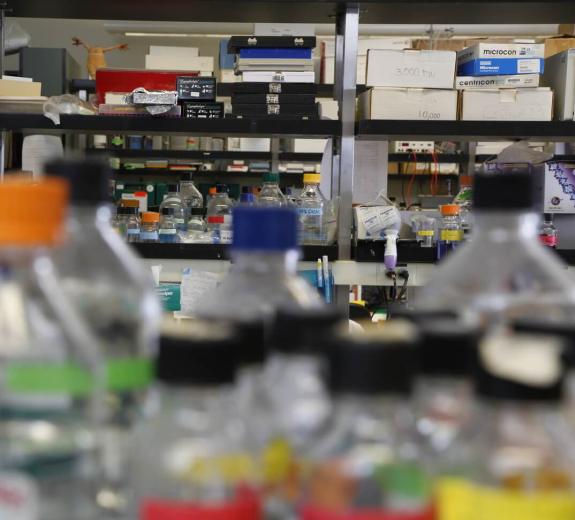How did you become interested in this work?
My training was originally in pharmacology. I switched to immunology because I was really interested in trying to understand defense against pathogens. It struck me that we are living with bacteria all the time, but we have very different relationships with some bacteria versus others. I wanted to understand why our immune systems don’t go into overdrive and develop excessive responses to those microbes that live in our gut and on our skin. I really became interested in trying to approach that from the perspective of immunology, rather than using a sequencing-based mindset to understand those microbes.
Were you always interested in science?
Yes. I had never really thought of myself as a scientist, but science was always interesting to me. Then I went to university and realized I could actually have a career in science where I could dedicate a lot of time and energy to asking these interesting questions.
What drew you to BRI?
BRI has been on my radar since I was a grad student. I was following Dr. Steve Ziegler and Dr. Daniel Campbell’s work, as well as following Dr. Estelle Bettelli’s work before BRI and since she came here.
As I went further into my postdoc, I started thinking about setting up my lab. I thought about where I might like to be: what community I wanted around me and what sort of department would allow me to spend time on fundamental immunology questions — while also trying to drag my science into the future by doing more translational work with access to patients and patient cohorts. BRI stood out in that regard. I’m looking forward to going beyond basic immunology, which is what my love is, and taking it to the next level by doing translational research. I was also drawn to the setup at BRI, including the Tetramer Core, systems immunology and the biorepositories. It’s very rare to get all of those fantastic resources in one place!
What keeps you motivated?
I’ve always had a pretty strong work ethic and drive. I think that stems from competitive sport when I was younger, when I was running and racing bikes to a decent level. I think that motivation has always been there. But now for sciences, my interest in big questions like “I wonder how that works?” or “How can we address this problem that people haven’t figured out yet?” keeps me motivated. Part of that also comes back to my interest in engineering and enjoying making new tools to answer questions that people haven’t asked before. Science is fun because of the people you get to interact with as well — getting to discuss fun science stuff is a big part of it.
What is something about you that would surprise others?
I spent a lot of my time in university building a race car with the engineering students.




